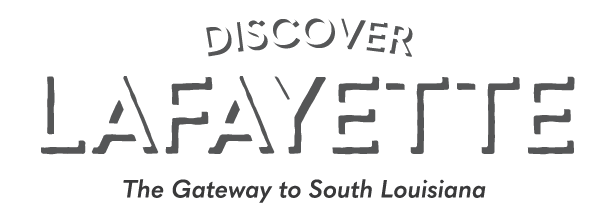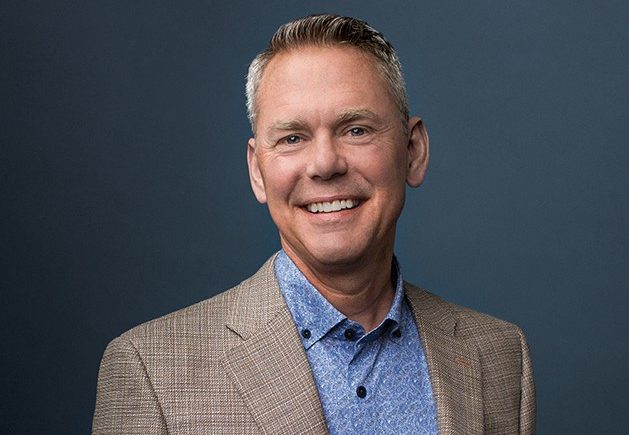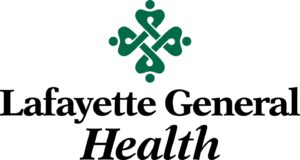Podcast: Play in new window | Download (Duration: 57:41 — 79.2MB)
Lafayette General Health System CEO David Callecod joined Jan Swift to discuss how COVID-19 has impacted our healthcare system and way of life. The bottom line is that progressing to Phase III of the pandemic, the full reopening of our economy, and returning to “normal” is totally dependent on our own individual and collective behavior changes: everyone must wear a mask, maintain social distance, wash their hands, and stay home if sick.
The reality is that for the next 18 months (and worst case scenario, the next 24 months), we will not going to be back to the life we experienced and enjoyed as “normal” before the pandemic closed down the U. S in March 2020. Moreover, some people will probably continue to wear masks from here on out, in a manner similar to Asian and European countries pattern, particularly if their immune system is compromised.
We all need to be diligent every day in making good choices as to how we work together and celebrate life as we wait for an effective vaccine to be developed. Callecod shared a telling story about a recent COVID outbreak affecting 18 anesthesiology residents and fellows of the University of Florida Health System following a private party on July 10; even with explicit warnings about private gatherings, these events continue to happen across the U. S., even among our most educated.
Locally, Callecod says it is “absolutely safe” to enter hospitals, as long as people make good choices in wearing a mask and following good hygiene procedures. Cleaning protocols are in place and the hospitals screen people before they enter.
When determining which hospital to bring trauma victims to, emergency medical responders and hospitals rely upon LERN, “Louisiana Emergency Response Network,” a statewide system of care coordination that is utilized in the face of large scale emergencies such as COVID. LERN manages data on trauma cases throughout the state, and as long as LGH can handle the case with adequate staff, people will be brought to the main campus. Callecod stated, “As long as LGH can handle it from a staffing standpoint for the patient’s particular situation, we’ll take the patient.”
There are currently over 100 COVID-19 patients at the main Lafayette General campus in the Oil Center, and they are separated from other patients in the facility. Elective procedures have been moved to other LGH campuses such as Lafayette General Orthopaedic Hospital and Lafayette General Surgical Hospital, in order to ensure that staff can take care of emergencies at the main campus which serves as the Level II Trauma Center for the region.
Staff shortages experienced by hospitals has been a hot topic in the news and Callecod explained what is different now from the early days of the pandemic. “On April 13 during the first peak of the pandemic cases, we didn’t have a lot of community spread, so we didn’t have a lot of workers out. With the peak today, with over 140 COVID patients throughout our entire system, a lot of workers are out sick. There aren’t enough nurses and we have 86 employees system wide out today with COVID. Once they’re back, they are fatigued and we have to be cautious with our shifts.”
At the time of our interview, eight contract nurses had been recruited by LGH from outside of the region and were set to start work. The community spread of the disease is greatly impacting staffing capacity at all hospitals. Healthcare workers are in short supply as Lafayette General and other hospitals; as facilities increase ICU beds and add medical surge capacity needed to address the anticipated increased volume of patients, staffing needs will continue to grow. Typically the hospital could easily recruit out-of-state, but COVID’s reach has dramatically affected the supply of available workers.
Telemedicine has transformed the delivery of medical services and the lessons learned from COVID will change protocols moving into the future. “Why do we have waiting rooms that congregate sick people?” professionals are asking. “The genie is out of the bottle with telemedicine, ” Callecod says. From March 2020, LGH has experienced 16,000 telemedicine visits and 2300 urgent care visits via their Lafayette General Health Anywhere App.
Telemedicine reimbursement is an issue that policymakers need to address. While Medicare and Medicaid telemedicine visits have been covered, many private insurers are not covering care by private physicians as insurers have been leery of telemedicine cases exploding. LGH has been fortunate to be reimbursed for its telemedicine care of the LSU System but Callecod shared that there is a long way to go in convincing insurers to cover this emerging form of treatment.
Treatment protocols have changed dramatically from the start of the pandemic to today. In the beginning, patients were put on ventilators as quickly as possible and now the docs know that it is best to wait as long as possible to pursue that course of treatment. Now, other means are being used to increase air flow and lung capacity such as CPAP and BiPap units which have proven more helpful. Steroids are administered and Remesvidir has had really good effects on patients. Fewer patients go to ICU and fewer go on ventilators.
One of the reasons more patients are in the hospital is that the length of stay in the ICU and for medical surge patients have dropped in half. The hospitals have more capacity because they’ve learned how to treat their patients, and nationwide, hospitals are sharing this experience.
Symptoms of illness vary dramatically from patient to patient, even within the same family who may all contract the virus. Some may become severely ill, others not; some have GI issues, others have respiratory, others have no symptoms. That is why it is important to wear a mask, as many people, especially the young, are asymptomatic.
The opening of schools is concerning as the kids are typically asymptomatic. “I am concerned that once we get the petrie dish of schools back in session, if we don’t socially distance and wear masks, we’ll see an uptick in cases which will affect all segments of our society, ” says Callecod.
Now that people are experiencing neighbors, family members and co-workers contracting the disease, it is becoming more real. “This is not a political issue to wear a mask. You protect everyone else as you don’t know if you have it. So many people are asymptomatic. You are being neighborly and civically responsible by wearing your mask. If you want the economy to open, to go to football games, wear your mask.”
Lafayette General’s merger with Oschner Health is moving forward and the anticipated date for completion is October 1, 2020. The Louisiana Attorney General has to approve the merger, as does the federal government pursuant to the Hart-Scott-Rodino act which prevents monopolies under antitrust laws. Lafayette General, as well as other hospitals in the LGH system (St. Martin Hospital, University Hospital & Clinics, Acadia General, etc.), will retain their names. The merger will result in a $450 million investment in capital improvements, programming, and other advancements in the region. Lafayette General Health is moving forward with improvements in its main campus and endeavors such as Women’s Services, Cancer, and Neuroscience Centers. Projects throughout Lafayette Parish and LGH’s partners will proceed and Callecod projects that other partnerships in the region will occur.
Callecod shared in closing that there is no collective memory of the Spanish Flu epidemic of 1918, as well as the Polio outbreak in the 1950s. When this is all said and done, this coronavirus is incredibly contagious. It is just slowly making its way through society and we may experience incredible losses. We must all work together to protect ourselves and each other.
Discover Lafayette thanks David Callecod and Lafayette General Health for their contributions to our healthcare community, and for sharing this message on our podcast! Please everyone, exercise good hygiene and wear your mask until we get past this pandemic!





